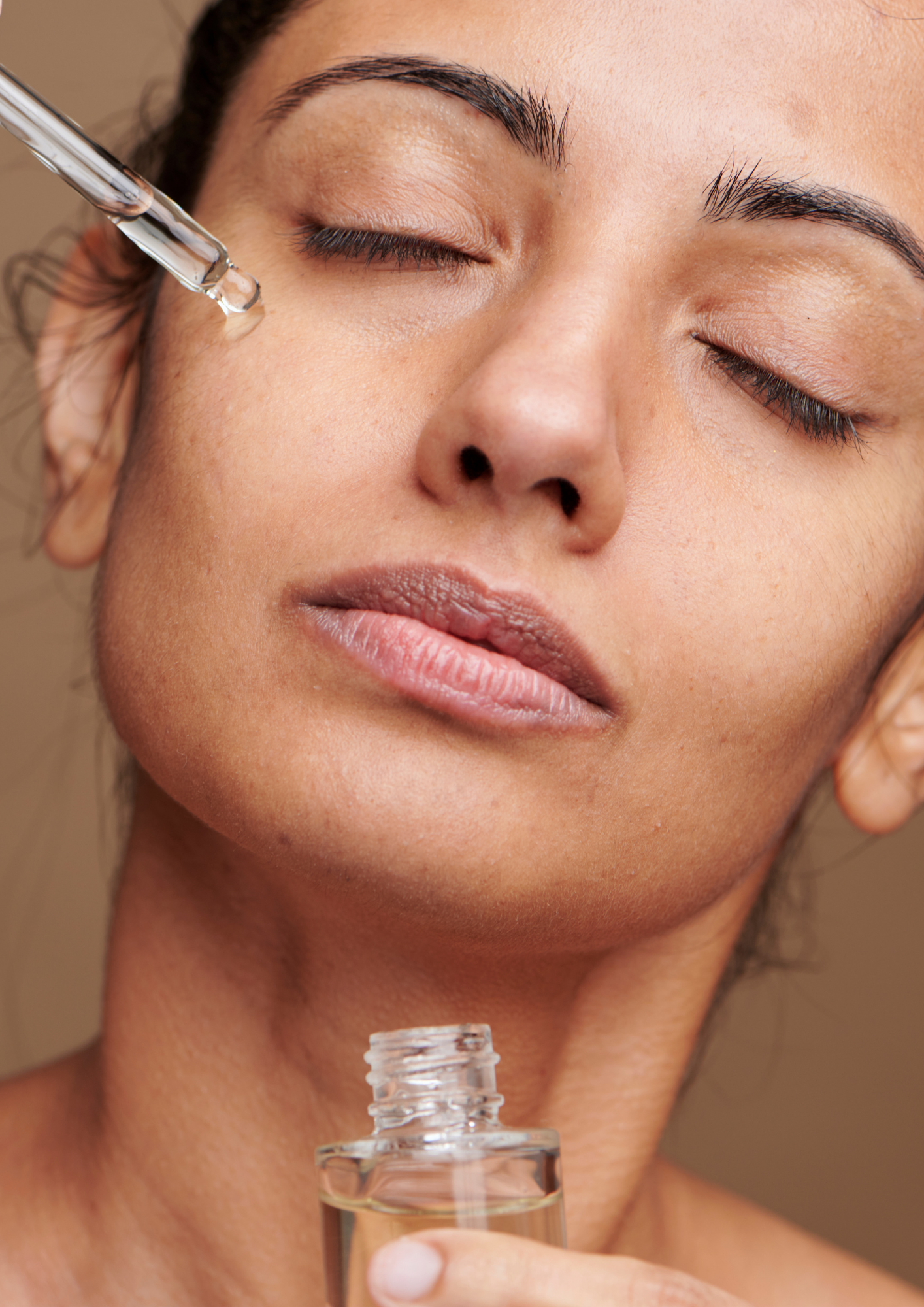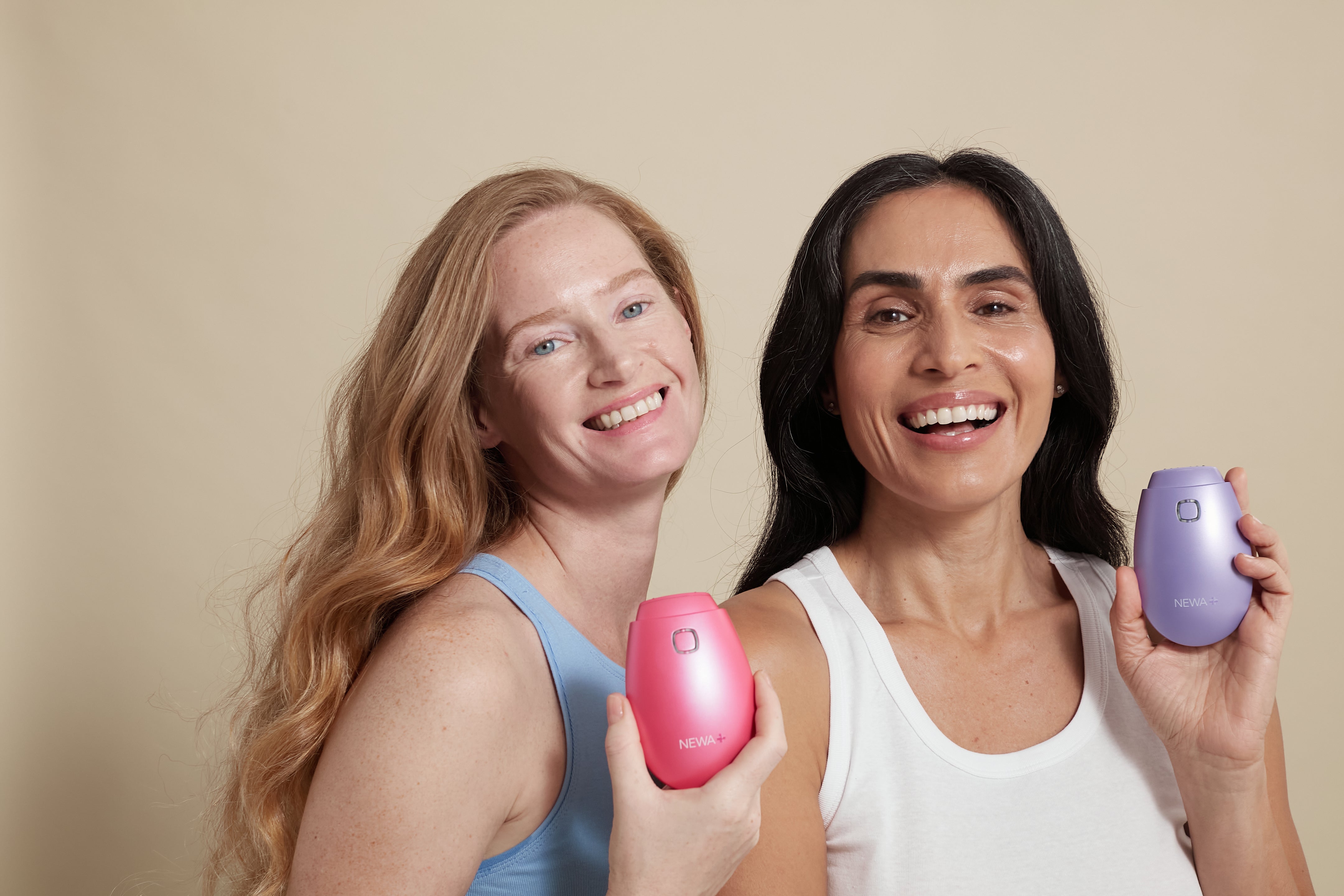As we go through the colder months of the year, you may hear quite a bit about hyaluronic acid and its benefits for skin care. So let’s dive into what does hyaluronic acid do for your face; how to apply hyaluronic acid, when to use a hyaluronic acid serum for face, and everything else you need to know.
What is hyaluronic acid?
Hyaluronic Acid is a substance naturally produced by our body and present throughout it, not just in our skin. In fact, research shows that this gooey and slippery product is present in our eyes and joints too, where it helps our body move smoothly, preventing pain and injury. Hyaluronic acid in the body belongs to a family of chain molecules called polymers, which allow water to latch on easily. So easily in fact that just a quarter-teaspoon of hyaluronic acid can hold about one and a half gallons of water, fun fact.
When it comes to our skin, hyaluronic acid is what helps retain moisture and make it flexible and stretchy. It also contributes to keeping the skin wrinkle-free and plump.
Hyaluronic acid benefits for face
Because it is so good at locking moisture into the skin, hyaluronic acid is great to use, especially during the winter as the air is very dry both outdoors and indoors. Hyaluronic acid is what can ensure that your skin retains the hydration it needs to feel and look healthy, especially when you experience dryness.
Using hyaluronic acid for your skin, often in the form of a face serum, allows for stretch in the skin and reduces wrinkles, which tend to appear with skin dehydration.
When and how to use hyaluronic acid
As mentioned above, the colder months are the perfect time to incorporate a hyaluronic acid face serum into your winter skincare routine, but using it all year round can do wonders for your complexion.
There are different ways to use hyaluronic acid for your skin. Its most common form is in a serum formula that you apply on your face after cleansing day and night to help retain moisture, improve flexibility and combat dryness as well as signs of aging. Hyaluronic acid can also be taken as a supplement by mouth to achieve these results.
In addition, hyaluronic acid is also available in the form of injections for your face. These fillers are administered by experienced professionals in clinics and are often used to restore volume to the face and fill wrinkles and fine lines, including around the lips. Hyaluronic Acid fillers can also be used to repair or conceal acne scars. Filler injections are regularly maintained, as recommended by your dermatologist.
In general, if wrinkles, fine lines, dryness or dullness are some of your skin concerns, you may want to look into the best hyaluronic acid serum or face lotion with hyaluronic acid for your skin.
Using Hyaluronic acid in combination with RF therapy
We’ve already established that hyaluronic acid may be right for you if you’re dealing with signs of aging. But you can also maximize the results of using a hyaluronic acid serum by incorporating radio frequency therapy into your routine as well.
Radio frequency therapy devices use energy waves – known as radio waves– to help stimulate collagen production in our skin. When the device comes in contact with the epidermis, the surface level of the skin, the radio waves generate gentle heat, which penetrates into your skin’s deeper layer known as the Dermis. There, it stimulates the production of collagen, a protein responsible for tightening the skin. This technology is non - invasive and completely pain free.
RF treatments can be performed by professionals in clinics but are also available for at-home use for a fraction of the price using devices such as the FDA-cleared NEWA RF wrinkle reduction device.
It is important to note however that if you have had hyaluronic acid fillers previously injected into your face, you may want to wait at least two weeks after the procedure before doing RF. If you are just using a hyaluronic acid serum or hyaluronic acid face cream as part of your skin care routine, this shouldn’t be an issue. Consulting your dermatologist before trying anything new is always the best idea.
FAQ
Is it OK to use hyaluronic acid every day?
Over the counter serums and face creams with hyaluronic acid are usually safe to use twice daily: morning and night after cleansing your face, as part of your skin care routine. But you should always follow product instructions for the specific product you purchase and monitor your skin. As for prescription products or fillers, your dermatologist can best advise you on the frequency of use.
Does hyaluronic acid lighten skin?
Skin brightening is not a direct effect of hyaluronic acid, but it allows for more effective and longer-lasting hydration in the skin, which facilitates our skin’s rejuvenation processes and means our skin cells renew faster and better. This, over time, can help minimize dark spots and make the complexion more radiant.
Does hyaluronic acid make skin clear?
If you are suffering from acne, hyaluronic acid may help make your skin clearer. Most acne is caused by the skin’s overproduction of oil, known as sebum, which blocks pores and causes breakouts. It turns out, retaining water in the skin with hyaluronic acid can help control oil production and thus decreases zits and spots. It also strengthens your skin’s natural barrier, which helps protect it from aggressors like UVA/UVB rays or pollution. For acne scars, hyaluronic acid fillers are also known to be effective.
What not to mix with hyaluronic acid?
If you are using a topical over the counter hyaluronic acid product on your skin, it should be quite safe to use in combination with any of your regular products. Hyaluronic Acid fillers, however, do have some limitations when it comes to combining them with other products. In general, we always recommend consulting a dermatologist before using anything new.
Why does hyaluronic acid burn my face?
Hyaluronic acid is generally very safe to use and shouldn’t cause any burning or allergic reaction to your face. If your hyaluronic acid product burns, it may be because of another ingredients in this product, incorrect frequency of application or if you’re using a product with a hyaluronic acid concentration that is too high. You should consult your dermatologist in this case.
Conclusion
Hyaluronic acid is a substance found throughout our body which is well known to help attract and maintain moisture very efficiently. The hyaluronic acid benefits for skin care are numerous: it can help with hydration, fine lines and wrinkles, acne, acne scars and even dullness. Depending on your priorities and main skin concerns, you may want to use it in the form of a topical product such as a serum, a supplement, or a filler. In general, it is very safe to use and can be combined with many other products, including the use of a collagen boosting technology such as radiofrequency therapy.
Sources used in this article




